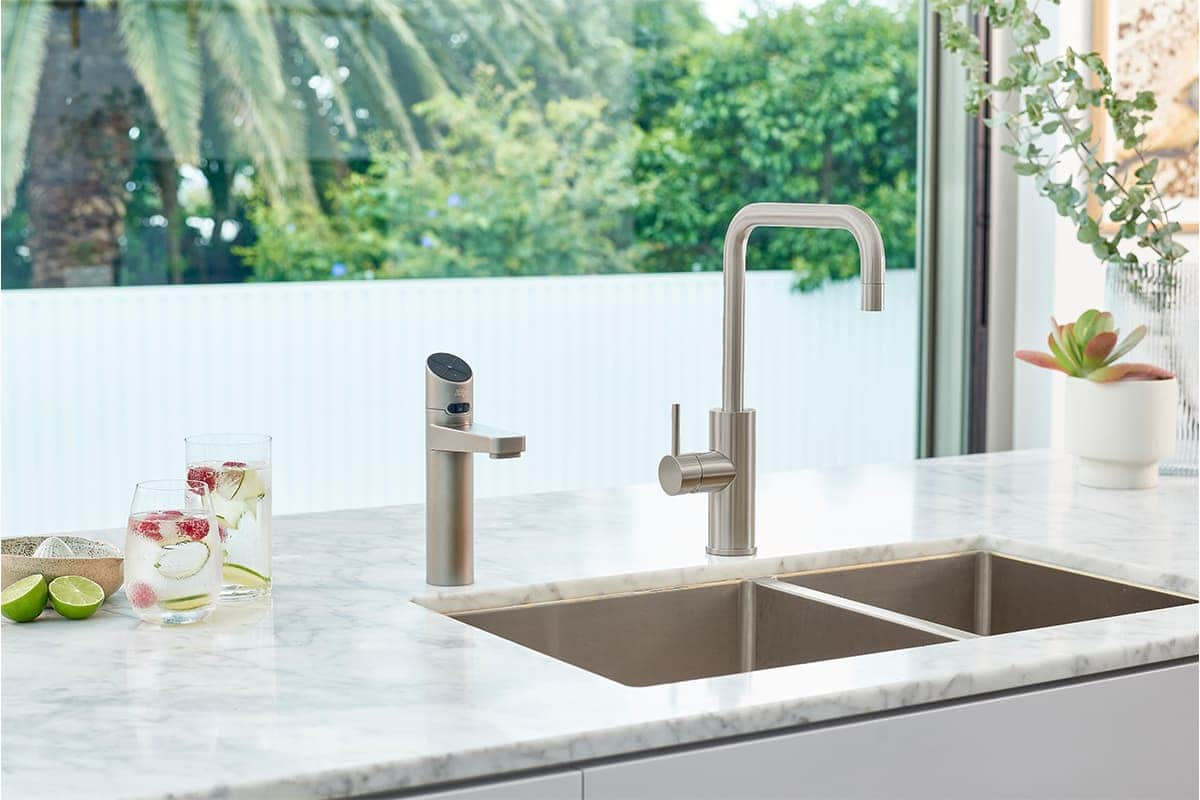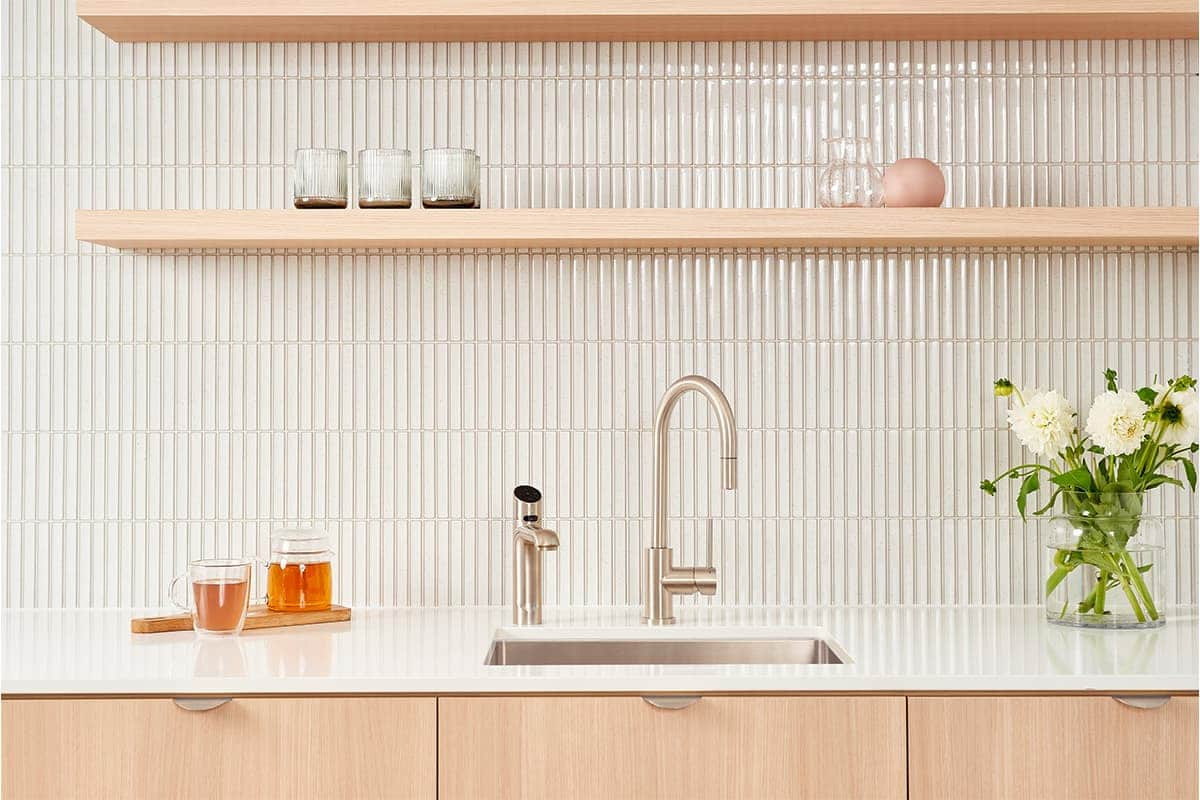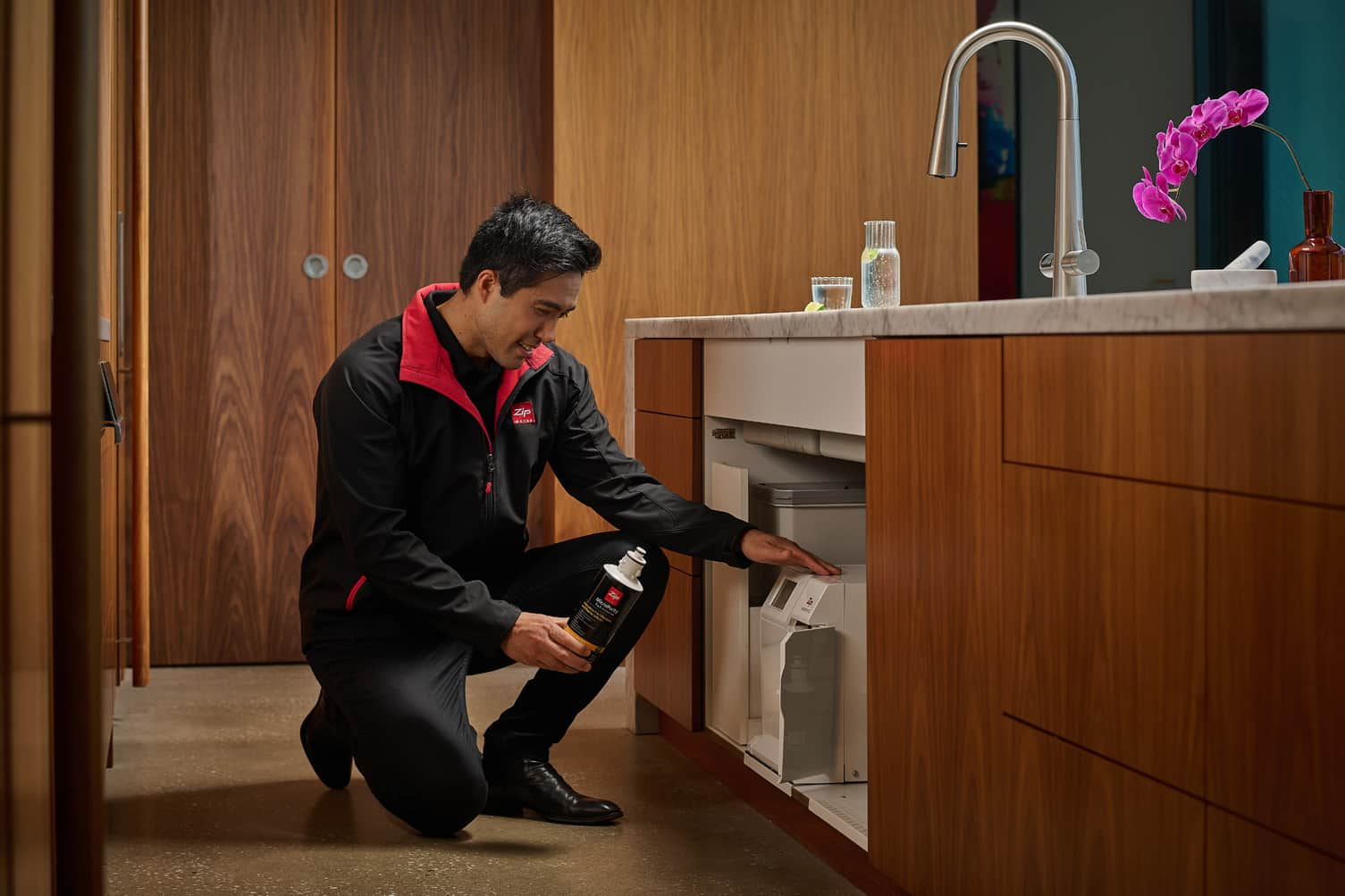The ultimate guide to a plastic-free workplace
Design | 30-06-24

Adapted from the UK version here but localised with Australian statistics
With an ever-increasing focus on sustainability and the environment, there is no better time to start - or continue - your workplace's journey to becoming plastic free. Read on to discover some easy, actionable steps to reducing plastic pollution in the office.
8 ways to make an office plastic free
Plastic consumption in the office is unnecessarily high. Here are 8 simple ways to help make your office plastic free.
1. DITCH SINGLE USE PLASTIC BOTTLES
Plastic pollution caused by the excessive consumption of single-use plastic bottles has deservedly been receiving greater pushback in recent years. According to figures from Sustainability Victoria, Australians use more than 15 billion single-use plastic water bottles per year, most of which end up in landfill or our waterways.
A plastic bottle will take over 450 years to degrade; taking a few simple steps can help your workplace avoid contributing to the millions of harmful plastic bottles entering the environment every day.
Bottled water is often reached for because it is seen as convenient, with a better taste than regular tap water. Providing an advanced filtered drinking water system for your office, like the Zip HydroTap, will encourage your employees to leave the plastic behind in favour of better-tasting water that is healthier for both them and the planet.
Switching to reusable water bottles or cups and replacing the plastic ones that quickly build up as waste is a simple change that makes a big difference to your overall sustainability credentials.
2. PROVIDE A WELCOMING OFFICE KITCHEN AND LUNCHROOM
Grabbing lunch on the go is part of the daily routine for many workers, but this is a huge contributor to the growing sea of plastics ending up in landfill and the ocean. Research published by the journal Nature Sustainability found that 10 plastic products make up 75% of all items polluting the ocean, and takeaway food and drink items were some of the biggest offenders.
By making your office kitchen a clean, modern and welcoming environment, staff will be encouraged to use it. If the kitchen is a lovely space, and there is a lunch area to match, employees are likely to feel more inclined to stay in the workplace for lunch. Even if only half of the staff bring their own container to work, transported in their own bag, it will massively reduce plastic use in the office on a day-to-day basis.
A sleek and modern design for your kitchen will appeal to the majority, while also making your workplace appear more professional. HydroTap, with its minimalistic design and advanced features, is an ideal addition to enhance that effect.
Beyond the appeal of a modern kitchen and lunchroom, drawing attention to the money employees will save and the environmental benefits of bringing your own lunch may sway some that are still on the fence.
3. DISCOURAGE THE USE OF DISPOSABLE COFFEE CUPS
In Australia alone, we throw away 1.8 billion paper coffee cups every year. While there are a few initiatives underway to change this at the source, like producing coffee cups with recycled paper, the best way to reduce plastic pollution is to avoid them altogether.
Substitute the local café or coffee chain for drinks in the office; providing an instant boiling water tap can make an in-office coffee too convenient to resist. On a bleary-eyed morning, most people will choose the path of least resistance, so always ensure there are mugs clean and available to use, and the coffee supply is ready to go. With HydroTap, a much-needed caffeine boost is only seconds away.
As with takeaway lunches, the daily expense of a coffee quickly adds up. Raising awareness of the amount of money staff could save - which is often thousands of dollars a year - and the environmental impact of disposable cups could help dissuade some avid coffee drinkers from their takeaway habits.
You could also run challenges in the workplace - like creating a tally of coffee cups used and awarding a prize to the person with the least - to reduce plastic waste. With time, it will become second nature to bring a travel mug to work, or simply use the mugs available in the office, instead of heading to the coffee shop on autopilot.
4. USE SUSTAINABLE SUPPLIERS
A shocking amount of the world's total plastic pollution is caught up in the supply chain; 91 percent of packaging waste is sent to landfill or winds up in the environment.
Finding a plastic packaging solution is the job of the supplier, but the supplier you choose will ultimately determine your own ability to become a plastic free workplace.
Many suppliers have found environmentally friendly alternatives to plastic packaging. Using biodegradable materials or materials more generally suited to recycling for packaging is becoming easier with every year, and more common across suppliers in all sectors. These days, there are few acceptable excuses for using plastic in the supply chain; prevent your workplace from becoming part of the problem by choosing a supplier that prioritises sustainability.
Look out for their provision of eco-friendly services; many suppliers will go one step beyond replacing plastic packaging - offering certain features, like collecting materials that need to be recycled once their vans have been emptied for delivery, that increase your workplace sustainability.
5. ENCOURAGE PEOPLE TO RECYCLE
Never having any single-use plastics in the office at all is the ultimate goal, but the next best thing is to ensure they are recycled correctly. One million tonnes of Australia's annual plastic consumption is single-use plastic, with 84% of plastic sent to landfill and only 13% is recycled.
There is a lot of confusion around what can and can't be recycled - and this is especially prevalent where plastic is involved. Often, a small symbol is the sole indicator of the recycling status of a piece of plastic. Many people are unfamiliar with these, and simply throw the plastic away. Teaching your staff how to recycle through simple guides and tables will make the information easily digestible, and reduce the amount of plastic waste produced in your workplace.
Learning how to recycle is important for those who wish to lead a plastic free life, and recycling is essential: educating your staff is an easy step to help overcome a wider issue.
6. PLASTIC FREE GENERAL OFFICE SUPPLIES
Plastic is commonly found in the everyday items around the office: pens, staplers, notebooks and bin liners being just a few examples.
Millions of plastic items used in offices are produced every day; these single use plastics, though small, quickly amount to a huge pile of waste. Switching plastic office supplies for reusable or biodegradable alternatives is yet another simple change that can make a big difference to the sustainability of your workplace.
Eco-pens, eco-friendly notebooks, biodegradable scissors and waste-free staplers are all just a sample of the wave of sustainable products available to purchase; with further research and development already underway, this range of eco-friendly items is only set to increase.
7. MAKE THE KITCHEN A PLASTIC FREE SPACE
Along with the general food waste, an alarming amount of plastic waste can be generated in workplace kitchens. There are obvious culprits, but some items may surprise you.
REDUCE PLASTIC WASTE IN THE KITCHEN BY MAKING A FEW EASY-TO-IMPLEMENT CHANGES:- Ban plastic cutlery. Make plastic cutlery obsolete by providing stainless steel cutlery in the kitchen.
- Provide reusable plates and cups. Though less common, some workplaces still use disposable plates and cups. Replacing these with reusable alternatives, like ceramic mugs, will help reduce plastic use.
- Ensure your tea bags are plastic-free. Even tea bags aren't plastic free - many popular brands still contain plastic in their seals. It isn't difficult to avoid brands that still use plastic, as many well-known brands, including PG Tips and Teapigs, are plastic free and available in supermarkets.
- Get milk delivered in glass bottles. Plastic milk bottles have been around for so long, it's hard to remember that we ever used anything else. But some companies offer milk deliveries to offices in glass bottles, eliminating another source of plastic.
- Buy food items without plastic packaging. Whether it's a pack of biscuits or bananas, plastic packaging is an unnecessary addition to food items.
- Taking any plastics that remain to a collection point so they can be recycled is a great way to prevent any additional unnecessary plastic waste from ending up in landfill.
8. PLASTIC FREE COMPANY INITIATIVES
While most staff are unlikely to be against the idea of being environmentally friendly, they may be lacking in motivation.
Getting everyone involved on campaign days, or creating longer-term initiatives with incentives, are a few effective ways to encourage staff to actively reduce plastic in the workplace. Company-wide initiatives work to establish a sense of community and togetherness in the fight against plastic pollution, and draw greater attention to the issue, making it difficult for employees to ignore.
START YOUR OWN CAMPAIGN
The success of campaigns like Plastic Free July is a result of the willingness of companies to participate and enact change for the sake of the environment. Your company can become part of the global movement to end plastic waste by not just getting involved with national campaigns, but by starting your own.
Start your own environmental campaigns and 'Green Days' in the pursuit of becoming a plastic free workplace.
Ensure your workplace is part of the growing global movement to become plastic free. These 8 steps are all simple changes that can be made, with the help of sustainability-focused products like HydroTap and biodegradable office supplies, to make your workplace a plastic free environment.























